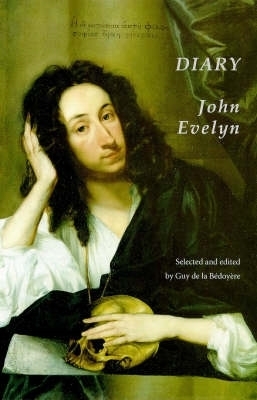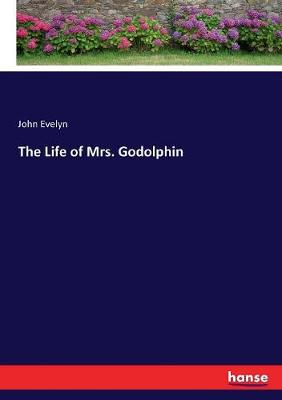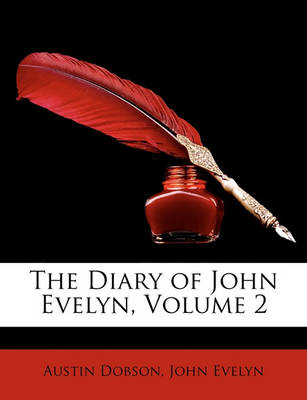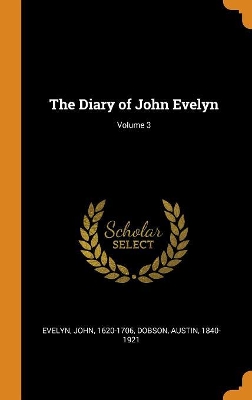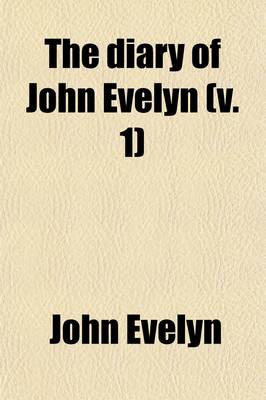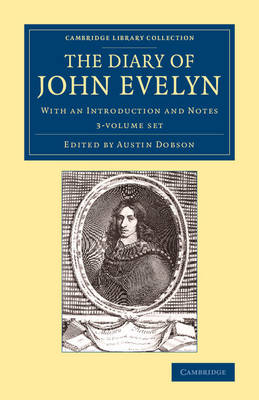Cambridge Library Collection - British & Irish History, 17th & 18th Centuries
1 primary work • 6 total works
Volume 3
The Diaryof John Evelyn (1620-1706) is one of the principal literary sources for life and manners in the English seventeenth century. Evelyn was one of an influential group of men which included Wren, Pepys and Boyle; a founding member of the Royal Society, he was also a friend of Charles II, a Commissioner for sick seamen and prisoners of war during the Dutch Wars, a prime mover behind Chelsea and Greenwich Hospitals, and a prolific author who wrote about architecture, art, arboriculture, fashion, and pollution. In his Diary he recorded the events and experiences of his long and remarkable life; there are also extensive references to his family, including his poignant recollections of the children who predeceased him.
This edition has been based on the only comprehensive and accurate transcription, by E.S. de Beer, published by Oxford University Press in 1955, but the text has been reworked into individual years and months while retaining the original spelling and grammar throughout.
GUY DE LA BÉdoyre holds degrees in history and archaeology from the Universities of Durham and London.
This edition has been based on the only comprehensive and accurate transcription, by E.S. de Beer, published by Oxford University Press in 1955, but the text has been reworked into individual years and months while retaining the original spelling and grammar throughout.
GUY DE LA BÉdoyre holds degrees in history and archaeology from the Universities of Durham and London.
John Evelyn (1620-1706), a founder member of the Royal Society, was a horticulturalist and author, best remembered for his diaries. Throughout his prolific writings he exhibits a strong distaste for the corruption of life at court. The beautiful and pious Margaret Godolphin (1652-78), a courtier more than thirty years Evelyn's junior, with whom he struck up an intense friendship in 1672, was maid of honour in the household of Queen Catherine, wife of King Charles II. To Evelyn she represented the antithesis of the corruption he despised. Written as 'a record of her perfections' following her death in childbirth, this hagiographic biography reflects the extent of Evelyn's devotion. Left among his unrevised manuscripts, it was not published until 1847, nearly two centuries after its composition. Edited by the bishop and orator Samuel Wilberforce (1805-73), the work includes helpful notes and genealogical tables that elucidate the text.
The Stuart writer and gardener John Evelyn (1620-1706), whose two-volume Sylva is also reissued in this series, kept a diary from the age of eleven, and in the 1680s began to compile this memoir from his records. It was first published in 1818 in an edition by the antiquarian William Bray; this three-volume version of 1906 was edited by Austin Dobson (1840-1921), the author and poet who also wrote the volume on Henry Fielding in the 'English Men of Letters' series, among many other literary biographies. In an extensive preface, Dobson explains his reasons for revisiting a work which had already received much editorial attention, and his introduction gives a short biography of its author. Volume 2 covers the period 1647-76, beginning with Evelyn still in self-exile in Europe; it records his return to England, the Interregnum and Restoration, as well as the Plague and the Fire of London.
The Stuart writer and gardener John Evelyn (1620-1706), whose two-volume Sylva is also reissued in this series, kept a diary from the age of eleven, and in the 1680s began to compile this memoir from his records. It was first published in 1818 in an edition by the antiquarian William Bray; this three-volume version of 1906 was edited by Austin Dobson (1840-1921), the author and poet who also wrote the volume on Henry Fielding in the 'English Men of Letters' series, among many other literary biographies. In an extensive preface, Dobson explains his reasons for revisiting a work which had already received much editorial attention, and his introduction gives a short biography of its author. Volume 3 covers the period from 1677, including the death of Charles II and the Glorious Revolution, and ending with notes made a few weeks before Evelyn's death in 1706.
The Stuart writer and gardener John Evelyn (1620-1706), whose two-volume Sylva is also reissued in this series, kept a diary from the age of eleven, and in the 1680s began to compile this memoir from his records. It was first published in 1818 in an edition by the antiquarian William Bray; this three-volume version of 1906 was edited by Austin Dobson (1840-1921), the author and poet who also wrote the volume on Henry Fielding in the 'English Men of Letters' series, among many other literary biographies. In an extensive preface, Dobson explains his reasons for revisiting a work which had already received much editorial attention, and his introduction gives a short biography of its author. Volume 1 begins with Evelyn's own memoir of his early life: regular entries commence in 1637, when he was a student at Oxford, and end in France in 1646.
The Stuart writer and gardener John Evelyn (1620-1706), whose two-volume Sylva is also reissued in this series, kept a diary from the age of eleven, and in the 1680s began to compile this memoir from his records. It was first published in 1818 in an edition by the antiquarian William Bray; this three-volume version of 1906 was edited by Austin Dobson (1840-1921), the author and poet who also wrote the volume on Henry Fielding in the 'English Men of Letters' series, among many other literary biographies. In an extensive preface, Dobson explains his reasons for revisiting a work which had already received much editorial attention, and his introduction gives a short biography of its author. The work begins with Evelyn's own memoir of his early life: regular entries commence in 1637, when he was a student at Oxford, and conclude a few weeks before his death in 1706.
